The OISE and TDSB Environmental Education in Action Conference will take place on Oct 26, and was created with teachers and graduate students in mind. There will be keynote talks, interactive workshops, and an EcoFair to provide ideas, strategies, and resources. OISE has many resources on environmentalism in education, but here are some highlights in the spirit of the conference!
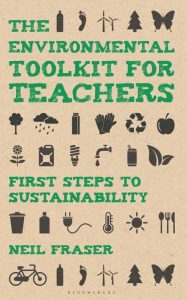 The Environmental Toolkit for Teachers written by Neil Fraser and illustrated by Hanna Forsgren
The Environmental Toolkit for Teachers written by Neil Fraser and illustrated by Hanna Forsgren
While this book is geared towards those teaching in the United Kingdom, environmentalism is worldwide. This book was published with the goal of reducing the ecological footprint of the school, as the UK has tasked schools with being sustainable by 2020. Schools have opted to do this by appointing an eco-teacher, who can use the appointment to involve students in learning. This toolkit contains information and ideas that: make the best use of time, set out fun and educational eco-projects, provide opportunities to practice active citizenship, and save research time by listing the most helpful resources. The Environmental Toolkit is divided into 4 chapters that discuss principles and background, waste, litter, and energy. This book is an excellent resource for educators looking to engage their students in environmentalism.
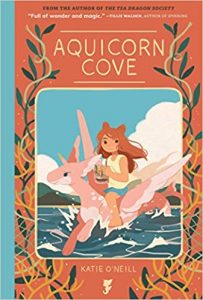 Aquicorn Cove written and illustrated by Katie O’Neill
Aquicorn Cove written and illustrated by Katie O’Neill
Lana and her father travel to visit their seaside hometown to help clean up after a storm and to visit Lana’s Auntie Mae. One day while walking along the beach, Lana discovers a unique, seahorse-like creature. This discovery leads to Lana learning about her aunt’s adventures on and under the sea, including Mae’s visit to the home of the Aquicorns. Thanks to the Aquicorns, both Mae and Lana learn the importance of ocean conservation and the difference one small village can make in bettering the environment. This richly illustrated graphic novel is best suited to students in grades 5 and up due to the discussion of the loss of a parent.
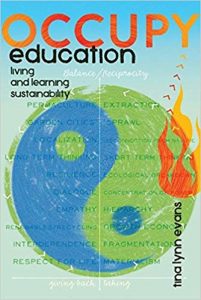 Occupy Education by Tina Lynn Evans
Occupy Education by Tina Lynn Evans
This book represents the author’s attempt to theorize and practice forms of education that rise to the occasion in which the world finds itself at the opening of the 21st century. The author asks what should sustainability educators teach, and how? This book attempts to answer this question through the author’s theories and examples of practice. There is a higher education focus throughout this work, and Evans also draws on Western and Indigenous theorists. This book contains chapters that explore the critical social theory of sustainability, a critique of globalized political economy and theory of enforced dependency as a pillar of the late capitalist system, and local food sustainability, among other topics.
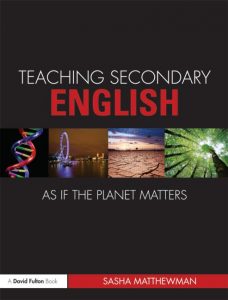 Teaching Secondary English as if the Planet Matters by Sasha Matthewman
Teaching Secondary English as if the Planet Matters by Sasha Matthewman
This book examines the potential for English to respond to the issues raised by the planetary emergency. The author posits that the environmental crisis is about cultural responses. Infusing English with a sense of value of the natural world encourages environmental activism and ecocritical awareness. This book presents thought provoking material about both English teaching and environmental questions. Topics featured in this work are connections between reading texts and reading the environment, the re-examination of the history of teaching English from the perspective of environmental education, and sustainable cities. This book is an excellent resource for ESL educators looking to infuse environmentalism in their teaching.
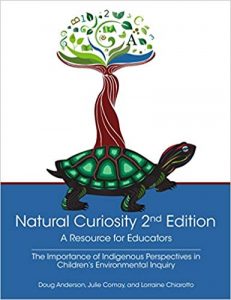 Natural Curiosity 2nd Edition: A Resource for Educators by Doug Anderson, Lorraine Chiarotto, and Julie Comay
Natural Curiosity 2nd Edition: A Resource for Educators by Doug Anderson, Lorraine Chiarotto, and Julie Comay
The second edition of this book was created after the incredible success of the first edition. There were high rates of downloads in both French and English, and thousands of paper copies were sold. The impetus for a second edition came from the Truth and Reconciliation Commission’s recommendation to bring Indigenous perspectives to Canadian education. The concepts in this book have been rethought and refined. For example, the theoretical section is followed by stories written by the teachers, in their own voices. In the first edition, one of the authors was writing the teachers’ stories on their behalf. This book is an excellent handbook for educators who wish to bring Indigenous perspectives on environmentalism into the classroom.
These books can be searched through the OISE catalogue, or visit the 2nd floor service desk for help locating these titles.
